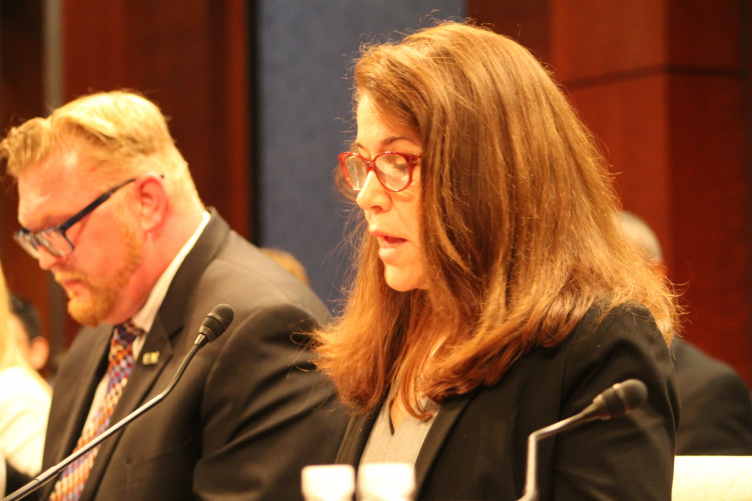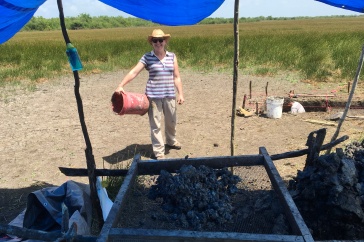
Courtesy photo
UNH sexual assault prevention researcher Sharyn Potter took her expertise to Washington, D.C., last month when she testified before a House of Representatives veteran affairs subcommittee. Her testimony supported House Bill 1092, which would make it easier for veterans to prove they suffered sexual trauma while serving, facilitating their access to disability benefits and economic assistance.
Potter, who is a professor of women’s and gender studies and executive director of research of UNH’s Prevention Innovations Research Center, drew on her research that shows the cost of sexual violence and its catastrophic impact on victims’ health, education and career trajectories.
“Access to disability benefits will reduce the veteran's military sexual trauma burden, allowing them to attain medical assistance and financially support themselves and their families.”
According to a Department of Defense report, approximately 7,500 active duty military men (.7 percent) and 13,000 women (6.2 percent) were sexually assaulted in 2018.
“I have interviewed both veterans and civilians who were sexually assaulted as they pursued their military careers and their education. Many of these survivors describe the spectrum of long-term health impacts and how these health problems hinder their ability to maintain stable employment,” Potter said in her testimony to the Subcommittee on Disability and Memorial Affairs of the Committee on Veterans’ Affairs. New Hampshire representative Annie Kuster and Chellie Pingree of Maine are among the members of that subcommittee.
Potter’s research shows that victims of sexual trauma face substantial impediments to completing their education and meeting their career goals, further undermining their economic success.
“When people transition in and out of the workplace or rotate among low-wage positions, they face economic instability, posing challenges in their ability to obtain food, housing, transportation and health care,” she said in her testimony. “Access to disability benefits will reduce the veteran's military sexual trauma burden, allowing them to attain medical assistance and financially support themselves and their families.”
The testimony went “amazingly well,” Potter reported, noting that it may lead to further collaborations with the military. The subject is one she’s passionate about. “Nobody serves their country thinking they’ll be sexually assaulted,” she said. “We owe this to the men and women in the military.”
-
Written By:
Beth Potier | UNH Marketing | beth.potier@unh.edu | 2-1566
















































